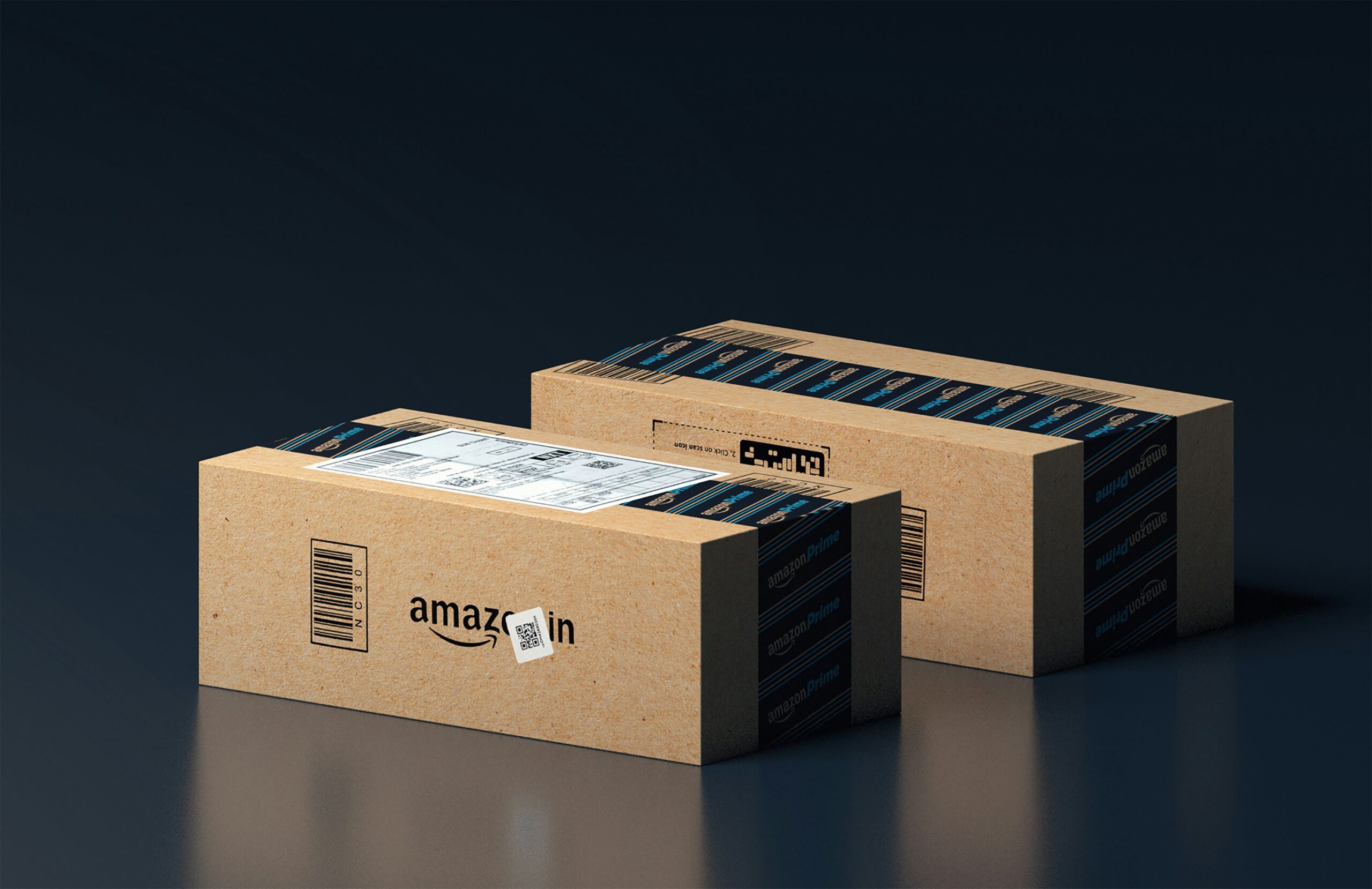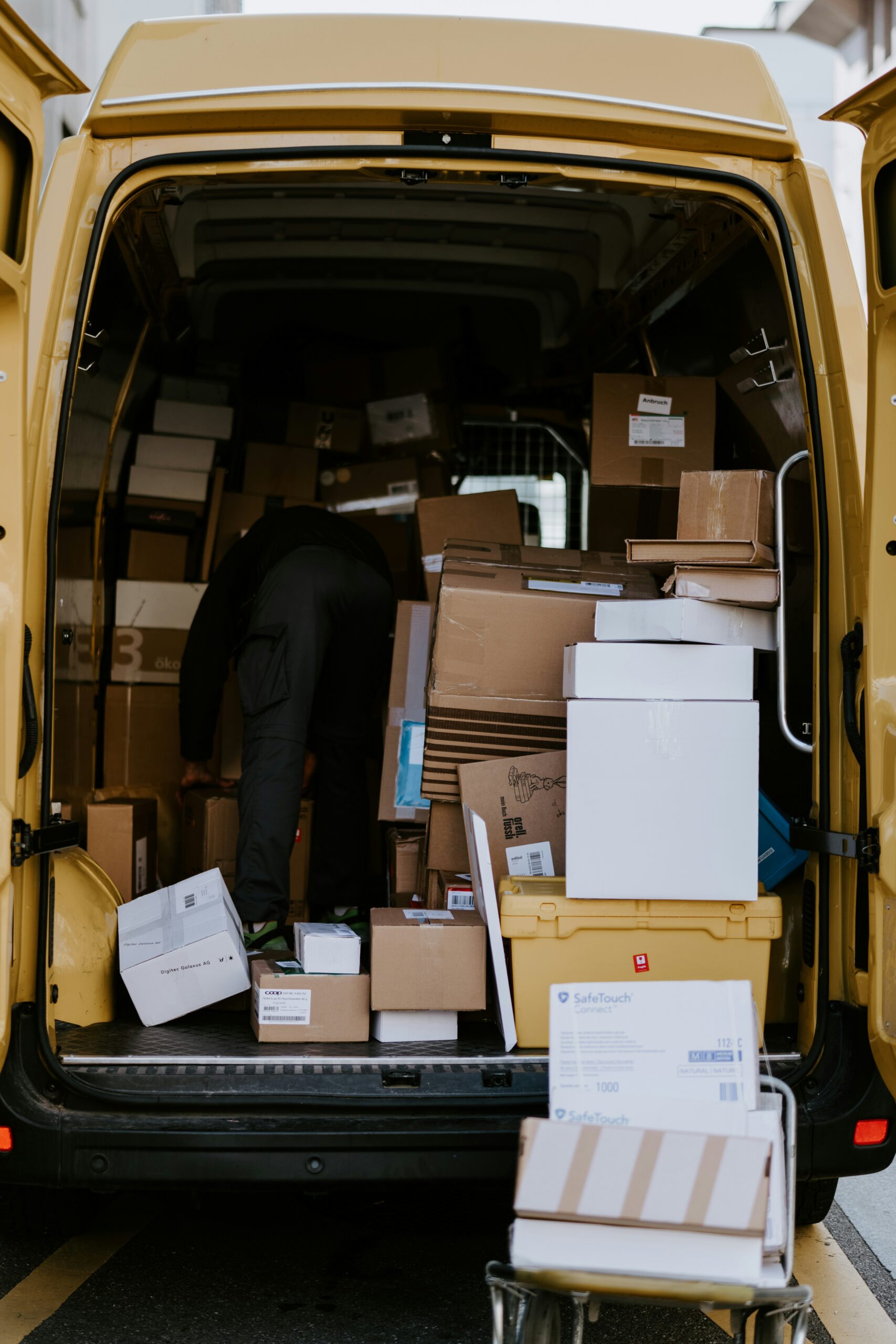 Are retail logistics stuck in the fast lane? Perhaps it’s time for a strategic detour. Clothing Coulture Podcast hosts Bret Schnitker and Emily Lane spoke with industry veteran Mike Robinson of The Eighth Notch in the episode “Transforming Retails Last Mile: Enhancing Efficiency & achieving Carbon Neutrality” to explore this very topic. With a wealth of experience in retail logistics, Robinson unveils a revolutionary approach to improving delivery efficiency, reducing costs, and benefiting the environment. Here’s how changing a simple element in the delivery process could usher in a new era for retail logistics.
Are retail logistics stuck in the fast lane? Perhaps it’s time for a strategic detour. Clothing Coulture Podcast hosts Bret Schnitker and Emily Lane spoke with industry veteran Mike Robinson of The Eighth Notch in the episode “Transforming Retails Last Mile: Enhancing Efficiency & achieving Carbon Neutrality” to explore this very topic. With a wealth of experience in retail logistics, Robinson unveils a revolutionary approach to improving delivery efficiency, reducing costs, and benefiting the environment. Here’s how changing a simple element in the delivery process could usher in a new era for retail logistics.
How Changing Delivery Timing Saves Both Money and the Environment
 Driven by competition to deliver at high speeds the current retail delivery model incurs high costs and inefficiencies. Mike Robinson believes there’s a smarter way. By timing the journey of packages perfectly, retailers can save big bucks. “If there’s something that’s already in flight, starting the journey at the right time ensures packages marry up throughout the network and arrive together,” he explains.
Driven by competition to deliver at high speeds the current retail delivery model incurs high costs and inefficiencies. Mike Robinson believes there’s a smarter way. By timing the journey of packages perfectly, retailers can save big bucks. “If there’s something that’s already in flight, starting the journey at the right time ensures packages marry up throughout the network and arrive together,” he explains.
This tweak means fewer stops for delivery trucks, slashing costs and carbon emissions, Robinson points out “800 grams of CO2 are saved every time a stop doesn’t happen.” It’s a win for carriers, retailers, and the planet—a true “win-win-win.”
Yet changing old habits isn’t easy. Coordinating deliveries post-checkout with a simple API (Application Programming Interface) call is a no-brainer compared to the ingrained “deliver ASAP” mindset. Shifting from speed to synchronized delivery can help retailers control the hefty costs often dumped on carriers who can’t handle them.
Collaboration as the New Competitive Edge
 Amazon’s grip on retail logistics seems unshakeable, but Robinson believes smaller retailers can put up a good fight by banding together and synchronizing logistics so multiple retailers can function like a single entity, delivering consolidated packages to consumers.
Amazon’s grip on retail logistics seems unshakeable, but Robinson believes smaller retailers can put up a good fight by banding together and synchronizing logistics so multiple retailers can function like a single entity, delivering consolidated packages to consumers.
A critical aspect of this coordinated approach is focusing on collaboration rather than just speed. Consumers conditioned to expect next-day deliveries may welcome an alternative that minimizes environmental impact without additional cost. “Amazon’s already conditioning customers to consolidate deliveries for an eco-friendly choice,” Robinson points out, signaling a broader industry trend towards eco-solutions over speed.
Innovation in this arena calls for scrapping the competitive mentality in favor of collaborative solutions. “Amazon isn’t smarter than other retailers; they just get to the right answer faster,” Robinson said. By embracing cross-retailer coordination, various retailers can rival even Amazon’s logistical skill.
Beyond Speed: Embracing Convenience and Consumer Choice
 Convenience is the new gold standard in retail customer service. It’s not just about speed but also about smart delivery coordination for a better customer experience. In episode 408 of Clothing Coulture Robinson said, “I envision a day when I’m in a checkout flow, and it identifies there’s already a package coming to me on Tuesday. It asks if I’d like them to arrive together.”
Convenience is the new gold standard in retail customer service. It’s not just about speed but also about smart delivery coordination for a better customer experience. In episode 408 of Clothing Coulture Robinson said, “I envision a day when I’m in a checkout flow, and it identifies there’s already a package coming to me on Tuesday. It asks if I’d like them to arrive together.”
He also touches on a critical yet often overlooked component: the growing phenomenon of porch piracy. Retailers who opt for speed over strategy unwittingly complicate the consumer’s life, increasing the risk of stolen packages when items are delivered without precise scheduling.
The retail industry can gain additional benefits by educating consumers on eco-friendly options, such as Amazon’s practice of highlighting the environmental benefits of consolidated deliveries. “Convenience and carbon savings present a compelling proposition for modern consumers,” Robinson said.
The Future of Delivery
The evolved delivery embracing collaboration extends to a future where the customer has more control over deliveries, aligning them with personal schedules and preferences, ultimately enhancing satisfaction and loyalty.
Retailers looking to succeed today need to rethink last-mile logistics. The rush for speed is outdated. Smarter coordination boosts efficiency, cuts costs, and helps the environment. As retail evolves, so should the strategies to exceed consumer expectations. There will be trial and error, but the more we adopt this new delivery method, the more change we will see. Embracing these changes can transform how businesses deliver value on all fronts.
*Note: This article is based on a Clothing Coulture conversation with Mike Robinson. All quotes are verbatim and direct from the transcript of the conversation.*
 Hadley Robinson is a Marketing and Website specialist at Stars Design Group. With a Bachelor of Arts in Fashion Business and a Minor in Photography degree from Columbia College Chicago, Hadley uses her knowledge of the fashion and art world to help manage SDG’s social and website channels.
Hadley Robinson is a Marketing and Website specialist at Stars Design Group. With a Bachelor of Arts in Fashion Business and a Minor in Photography degree from Columbia College Chicago, Hadley uses her knowledge of the fashion and art world to help manage SDG’s social and website channels.

